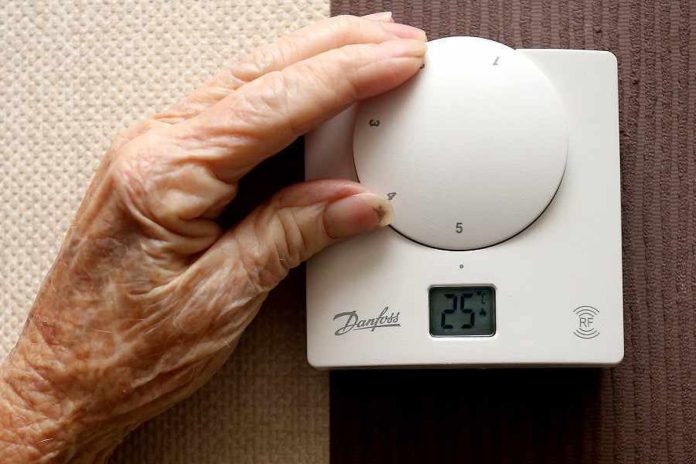Millions of UK households are at risk of becoming ill because they are not switching on their heating when it is cold, Which? warns, as Ofgem prepares to announce this next energy price cap.
A Which? survey of 4,000 people found high energy bills have put huge financial, physical and emotional strains on consumers – with nearly nine in 10 households trying to cut back on their energy usage.
Nearly half of those surveyed said they did not not turn their heating on when it was cold last winter. This equates to a shocking 13 million estimated households nationwide.
Sitting in freezing temperatures at home can put people at higher risk of developing respiratory and cardiovascular diseases like asthma attacks, infections, heart disease, and strokes. This is especially concerning given that four in 10 of those surveyed are worried that their ability to recover from illness is worse now than before the cost of living crisis began.
A woman with an annual household income of less than £15,000 said: “It has had a negative impact in all aspects of my life. I really struggle, we are always cold at home [but] I’m too scared to put the heating on.”
Another woman with an annual household income of less than £10,000 said: “I have multiple disabilities, one being fibromyalgia, and I can’t afford to put any form of heating on which is causing increased pain. It’s excruciating and therefore affecting everything I do.”
Which?’s research also found that some consumers – such as lower-income households and those aged 45-64 years old – are more likely than others to not turn the heating on when it is cold.
Half of households on less than £20,000 are not turning the heating on when it is cold compared to a third of households with annual incomes of more than £80,000 . Nearly half of households with annual incomes of £20,000 – £45,000 and just under half (45%) of households on £45,000 – £80,000 said they did not turn the heating on when it is cold.
The marked difference between households in the highest income band of more than £80,000 and the next highest income band of £45,000 – £80,000 shows just how bad the energy crisis has been – for both lower and middle-income households.
Those aged 45-64 years old are also more likely than other age groups not to turn the heating on in cold weather. This is probably because this age group is likely to have more financial responsibilities than the younger age groups – such as dependent children – but unlike older age groups, are not eligible to access pension savings.
Consumers also reported taking several other less extreme actions to cut energy costs. Over half reported wearing extra layers at home, four in 10 said they are reducing how often they use the oven and a third are cutting the number of baths or length of showers they take.
Which?’s research clearly demonstrates just how many consumers have had to make severe cutbacks to afford their energy bills – putting their own health at risk in the process. Even with the recent drop in energy prices, bills are still almost double what they were before the energy crisis.
With Ofgem poised to announce the October energy price cap on Friday and as winter approaches – when energy usage increases – the government and energy firms need to take action to help consumers who are struggling to make ends meet.
A properly targeted social tariff – which is a discount on energy for those most in need – is desperately needed to ensure energy affordability for those who need it most. Recent Citizens Advice proposals have shown how a social tariff could be designed to effectively target support where it is most needed. This would be based on both household income and energy usage, without creating a cliff-edge based on benefits eligibility.
Which? is calling for the government to introduce a social tariff along these lines as soon as possible. The 2022 Autumn Statement committed to having a new approach to consumer protection – such as a social tariff – in place by April 2024 and the government needs to take action on this as a matter of urgency.
The consumer champion is also calling on energy companies to do all they can to support their customers. This should include: ensuring their customer services are fit for purpose, prioritising traditional prepayment customers in smart meter roll-outs so they can easily access future support and taking steps to clarify bills and other communications so customers clearly understand any changes to their bills.
Emily Seymour, Which? Energy Editor, said:
“It’s hugely concerning that an estimated 13 million households have not switched the heating on when it’s cold due to fears of high energy bills.
“Our research shows that certain groups – such as lower-income households and families with children – are more likely to be left in the cold this winter.
“The government and energy firms need to act now to help those most in need make ends meet over the winter. The government must introduce a properly targeted social tariff as soon as possible, and energy firms must ensure that their customer services are equipped to properly support customers over the winter.”







